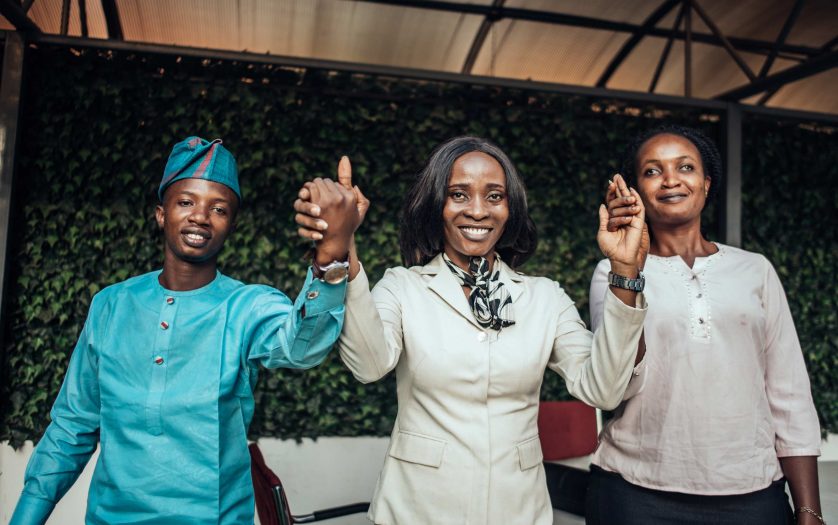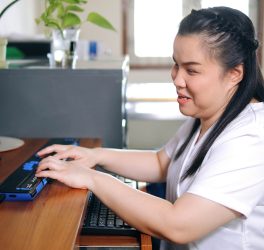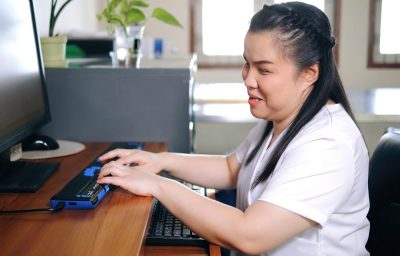
Business leaders, government representatives and disability campaigners are marking the end of an innovative employment programme that has helped over thousands of people with disabilities into work.
The Inclusive Futures programme focused on enhancing job opportunities and improving work environments for people with disabilities. Since 2019 it has supported more than 2,300 jobseekers in four countries to gain skills around work. It has also partnered with more than 500 businesses to improve their disability inclusion practices, including, Standard Chartered Bank, Unilever, Coca Cola and Diageo.
The Inclusive Futures employment programme is funded by UK aid and run in partnership by international development organisations (including Sightsavers), organisations of people with disabilities and country partners to improve job opportunities for people with disabilities.
Simon Brown, Sightsavers’ global technical lead on economic empowerment, has said, “In just three years, Inclusive Futures has made a transformational impact and more than doubled the employment rate of jobseekers who took part, from nine per cent in employment before the programme to 22 per cent afterwards. We’ve shown that systems can change. This progress is encouraging but there is still a long way to go”.
People with disabilities are twice as likely to be unemployed than non-disabled people. Opportunities to earn a living can be limited by stigma, discrimination and a lack of accessible workplaces, which can trap people in a cycle of poverty. However research[1] shows that companies who are working towards disability inclusion are on average twice as likely to have higher total shareholder returns.
Simon Brown added, “Making business more inclusive is not only the ethical thing to do, but it also makes economic sense. Encouraging people with disabilities to participate in the labour market could add $6 trillion to the global economy every year. And we know that countries that aren’t disability inclusive are losing out on up to seven per cent of their GDP”.
Eric Kiniti, Group Corporate Relations Manager of East African Breweries, Kenya, has said of their partnership with Inclusive Futures, “One of the challenges before was that we didn’t know how to be inclusive. But now we’ve found a credible partner, we are excited to roll this out: we’re looking at how to scale it up into a bigger platform and into the other markets we operate in.”
Following on from the three-year pilot, Inclusive Futures partners will continue to help businesses develop awareness in disability inclusion.
The Inclusive Futures hub brings together a suite of tools to support businesses to become more disability confident, advice and training for job seekers, and evidence for governments and donors on how they can support inclusive employment.








